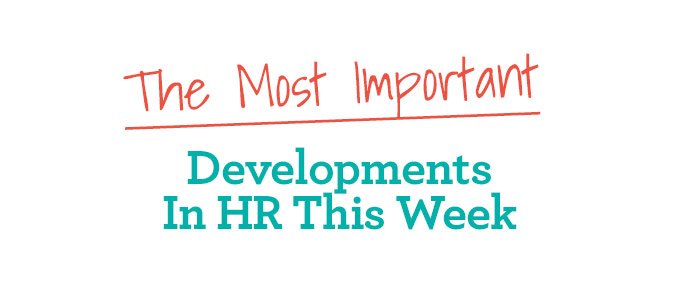
On Wednesday, SCOTUS ruled in favor of Mark Janus, striking down an Illinois law that required non-union workers to pay fees that go to collective bargaining. Janus didn’t want to pay up and took the case all the way to the Supreme Court, creating a firestorm that now threatens to engulf unions as we know them. People who are watching this case closely know that this isn’t just about a guy who was miffed about fees. This is an attack on unions. Ultra conservative groups with an agenda of crippling American unions, like the National Right to Work Legal Defense Foundation and the Liberty Justice Center, represented Janus. New York Times


The Atlantic just published a series of interviews that every HR pro should read. They talked to people who have quit, retired, been fired, reduced, or laid off with the idea of getting a glimpse into what it means to leave or lose a job. Depression, shock, the loss of a community, even the loss of identity can and does happen when someone leaves a place and people they’ve spent the majority of their time with day after day. How employers part with their employees matters, because, as this article points out, there’s no amount of training that can adequately prepare somebody to lose their job.That’s why the way you offboard is so critical. Trust us, read these interviews. The Atlantic


Deloitte just released their analysis of a survey they and Forbes Insights conducted in 2015. They were talking about things like scandals, safety recalls that damage the brand, cyber issues, even weather disasters. Almost all, 90 percent, said: “Yes. We’ve got this.” Deloitte’s analysis found, not so much. They found a gap between real and perceived crisis readiness in the eyes of board members and the large companies they direct. Less than half of respondents had a playbook for possible crisis scenarios. Only 32 percent engage in crisis training of any kind. Not surprising, then, that 70 percent of those who had experienced a corporate crisis said it took more than a year to recover. You have a situation and don’t handle it the right way, and your brand will take a beating. Deloitte


Scott Pruitt has had a bad run since he took the helm of the EPA. Trying to get his wife a job, using aides for personal tasks, his $50-a-night luxury D.C. condo owned by a lobbyist whose husband represents a natural gas company, the $40,000 trip to Morocco on the government’s dime to promote trade in natural gas, the request for 24-hour security protection … the list goes on. Given all that, does it come as a surprise that he allegedly retaliated against employees who complained about these things? Politico


Advances in technology are hurtling toward us at breakneck speed, but it takes a while before people really understand what it all means in terms of their privacy. The Facebook scandal is a good example. Did anybody understand that the quiz to find out who you were in a past life was actually collecting your Facebook data? We’d wager that came as a surprise to most everyone. The same thing is happening now with biometric technology. Sure, it’s cool to open your iPhone with your thumbprint and many of us think it’s commonplace. But what happens when employers use finger and facial recognition to do things like authenticate employees’ time? Workforce










